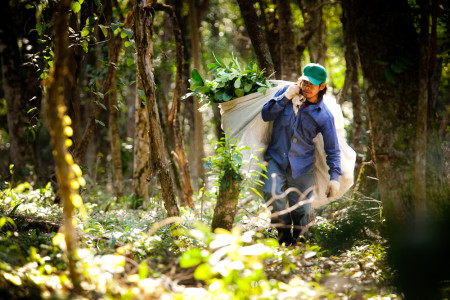Originally published on TriplePundit
 By Kate Danaher
By Kate Danaher
Rising demand for fair-trade products is creating an emerging need for growth in fair-trade supply chains. This is a fantastic opportunity to put more people to work under fair pay and labor standards — but the time and cost involved in scaling these supply chains while maintaining fair-trade standards poses a major challenge. To overcome it, we need new financing and business relationships that enable increased production while assuring benefits for supplier communities.
Chris Mann, CEO of the yerba mate beverage company Guayakí, boils the challenge down to its essence: If his suppliers grow 40,000 acres of mate, they can sell the leaves. If they have a drying facility to process those leaves, then they can generate three or four times the value from those leaves. That would raise their community’s standard of living and potentially expand their market, but where does the financing to build the facility come from?
Trade finance for international supply chains (credit lines and other instruments designed to bridge payment gaps between buyers and sellers) is well established. Capital expenditure (CapEx) finance, which funds facility and equipment needs, is not. Major funders such as the World Bank will do it, but only in major amounts — in the millions. Smaller-scale fair trade suppliers typically need much less than that, on the order of $100,000 to $500,000. That capital gap exists because these are challenging loans.
Read the full article on TriplePundit >

Photo courtesy of Guayaki
Kate Danaher is senior manager of Social Enterprise & Integrated Capital at RSF Social Finance.
The post Finance Innovation: The Next Frontier in Fair-Trade Supply Chains appeared first on RSF Social Finance.
This post was originally published on RSFsocialfinance.org
 Visit the Invest With Values - Resource Directory to access leading investor information, opportunities, organizations, events, groups and tools.
Visit the Invest With Values - Resource Directory to access leading investor information, opportunities, organizations, events, groups and tools.